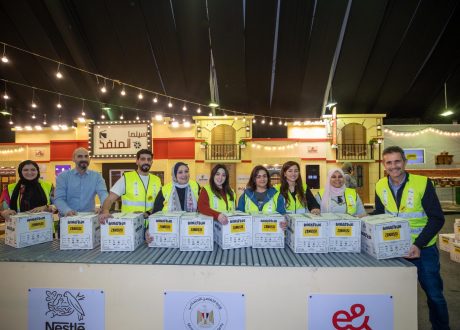
New “blue deal” needed to close $145 bn annual investment gap in sustainable ocean sectors
A new “blue deal” is urgently needed to close $145 bn annual investment gap in sustainable ocean sectors, according ...

The African Development Bank (AfDB) invested a total of $ 8.2 billion in 2022 to meet Africa’s needs through focusing on investing in the bank’s High 5 strategic priority areas driving Africa’s transformation; Light Up and Power Africa, Feed Africa, Industrialize Africa, Integrate Africa, and Improve the Quality of Life for the People of Africa.
This came in the bank’s 2023 Annual Development Effectiveness Review – entitled ‘Enhancing Africa’s Resilience’ – which highlighted the bank’s support to the sustainable development in Africa and its critical contributions to the continent’s development and the wellbeing of its people in 2022.
In 2022, the Bank’s investment in the High 5s resulted into that 12.3 million people gained access to new or improved water and sanitation services while another 4 million people benefited from the Bank’s private sector investee operations. To support the continent’s economic development and connectivity, the Bank also facilitated the construction or rehabilitation of 833 kilometers of roads.
Another milestone in the report shows investments in 2022 reaching $8.2 billion, signaling a return to pre-pandemic levels.
Sluggish economic growth, a global food crisis and climate-driven extreme weather events, threaten to slow the continent’s post COVID-19 pandemic recovery efforts, undercutting or even reversing, hard-won development gains. Russia’s invasion of Ukraine has caused further hardship across the continent, disrupting food and energy supply chains which have led to sharp price increases. Their effect has been to drive an additional 15 million people into extreme poverty.
Amidst a slow but steady recovery from the pandemic, Armand Nzeyimana, Acting Director of the Development Impact and Results Department, pointed to climate change as one of the remaining threats to the continent.
“With nine out of the ten most vulnerable countries in the world located on the continent, Africa is the least climate-resilient region globally. The severe impact of climate change on Africa underscores the urgent need to prioritize efforts towards combating its adverse effects,” he said.
According to the report, issues related to fragility and conflict, climate change and poverty will continue to present serious challenges for the continent. African countries must, therefore, redouble efforts to strengthen their capabilities, resources, and institutions, to build greater resilience to future shocks.
The Bank’s efforts to improve transparency and accountability as one of its goals to strengthen the efficiency and effectiveness of its operations, led to recognition. Publish What You Fund ranked the Bank’s Sovereign portfolio top out of 50 other bilateral and multilateral organizations in its 2022 Aid Transparency Index(link is external).
Beyond the immediate challenges and vulnerabilities, in 2023, the Bank will finalize its new Ten-Year Strategy, which will guide its strategic direction and priorities. Building on a successful replenishment of the African Development Fund in 2022, the Bank remains committed to pursuing efforts to scale up financing that will strengthen and support Africa’s achievement of its development priorities and the Sustainable Development Goals(SDGs).
As Africa strives to build back better in the wake of the COVID-19 pandemic and economic shocks, there is the need to collectively renew the Bank’s commitment to accelerate progress towards the SDGs.
In the foreword to the report, President Adesina stated “We need to raise our ambitions even further if Africa is to achieve its development goals. The Bank’s new Ten-Year Strategy will guide our efforts to promote and accelerate inclusive, climate-resilient growth and development, as we continue to make the High 5s and the Sustainable Development Goals a reality for Africa.”
A new “blue deal” is urgently needed to close $145 bn annual investment gap in sustainable ocean sectors, according ...
Zanussi, the leading home appliance brand under Electrolux Group, has announced participating in the 2025 ...
A recent report expected the Egypt Plastic Recycling Market to rise from $ 380.25 million ...


اترك تعليقا